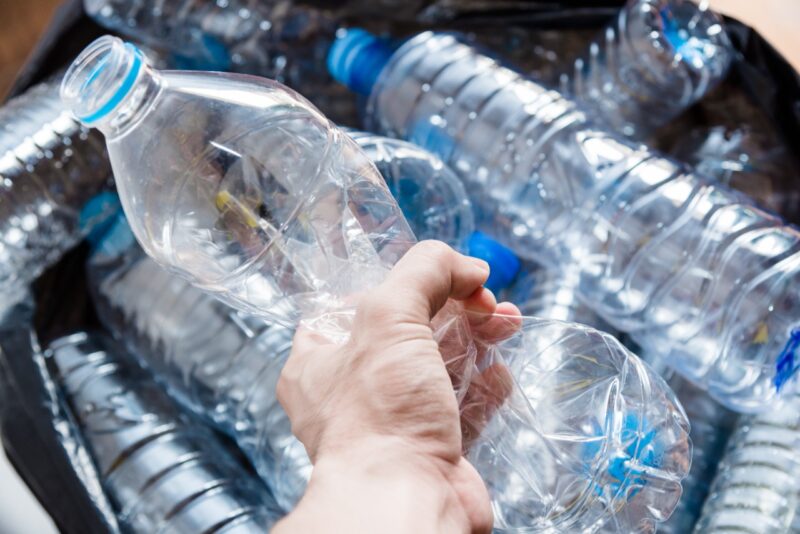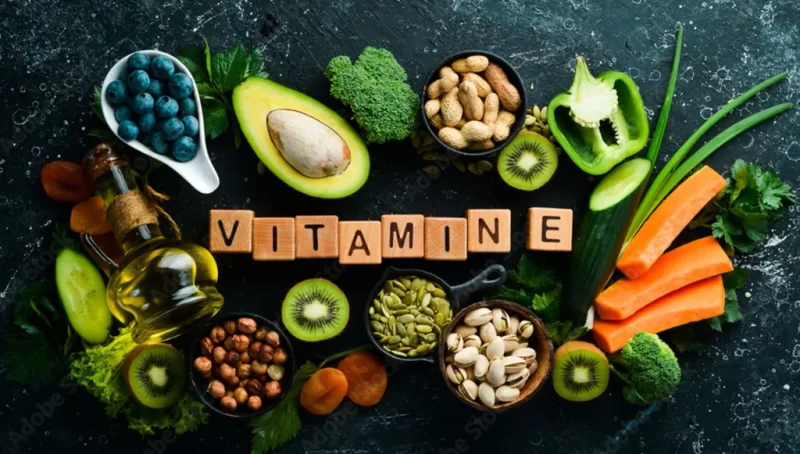Wellhealthorganic.com know why not to reuse plastic water bottles know its reason in Hindi
Wellhealthorganic.com know why not to reuse plastic water bottles know its reason in Hindi: Many water bottle manufacturers design their products for single-use purposes. However, if you’re environmentally conscious or in need of a quick container, you may have wondered about the safety of refilling these bottles. The safety largely depends on the type of plastic used.
Plastic bottles typically bear a number inside a triangle, indicating the type of plastic used and offering insight into its safety for reuse.
- Polyethylene Terephthalate (PETE or PET): Marked with a “1,” PETE is a lightweight plastic commonly used in water bottles and various food containers.
- High-Density Polyethylene (HDPE): Labeled with a “2,” HDPE is a sturdier and more durable plastic, often found in detergent bottles and gallon-size liquid containers.
- Other (Type-7 plastics): Identified by a “7,” this category includes plastics that don’t fit into the previous classifications. Some may contain bisphenol A (BPA), a chemical linked to endocrine system disruptions.
Also Read : Well Health Tips in Hindi WellHealth
Chemical Leaching is a common concern associated with reusing plastic bottles. This occurs when chemicals from the plastic mix with the liquid inside. However, with proper storage and the right type of plastic, this concern is typically minimal for single-use plastic bottles.
- Concerns with PET Plastics (Type-1): The FDA considers PET plastics safe for both single and repeated use. However, keeping these bottles in extremely high temperatures poses a risk of antimony leaching. Proper storage at room temperature and away from sunlight minimizes this risk.
- Concerns with HDPE Plastics (Type-2): Bottles marked with a “2” can be reused as long as they are washed well and free from cracks or damage. HDPE plastics pose a low risk for chemical leaching.
- Concerns with Type-7 Plastics: Some type-7 plastics, such as polycarbonate bottles, may contain BPA. A study found a significant increase in BPA levels in the urine of participants who drank from polycarbonate bottles for a week. To avoid this, consider skipping polycarbonate and BPA-containing plastics.
Plastic Bottles and Bacteria Growth are another consideration, as they can harbor harmful bacteria, making one-time use advisable. Bacterial growth occurs rapidly, especially from mouth contact and room-temperature beverage remnants. Regular washing is crucial, but wear and tear on reused bottles can create surfaces where bacteria thrive.
Considering these factors, if you prefer to reuse plastic water bottles, ensure proper washing. However, for a safer and more environmentally friendly option, consider choosing a reusable stainless-steel or glass bottle. These alternatives are easy to clean, eliminating concerns about bacterial growth and chemical leaching while being more eco-friendly.
Also Read : Wellhealthorganic.com simple ways to improve digestive system in Hindi
In conclusion Wellhealthorganic.com know why not to reuse plastic water bottles know its reason in Hindi, the safety of reusing water bottles depends on the type of plastic used. While PET and HDPE bottles are generally considered safe with proper care, concerns about chemical leaching and bacterial growth emphasize the importance of cautious reuse. Opting for reusable stainless-steel or glass bottles emerges as a safer and more environmentally friendly alternative, providing peace of mind for those concerned about both health and the planet.
FAQs About Wellhealthorganic.com know why not to reuse plastic water bottles know its reason in Hindi
1. Can I safely reuse plastic water bottles?
Answer: It depends on the type of plastic. PET (Type-1) bottles are generally safe for reuse, but high temperatures may pose a risk. HDPE (Type-2) bottles are safe if washed well and undamaged. Type-7 plastics may contain BPA, so caution is advised.
2. Is chemical leaching a concern when reusing water bottles?
Answer: Chemical leaching can occur, especially in PET bottles when exposed to high temperatures. However, proper storage at room temperature and away from sunlight minimizes this risk. HDPE bottles pose a low risk for chemical leaching.
3. Are there health concerns related to Type-7 plastics?
Answer: Some Type-7 plastics, like polycarbonate bottles, may contain BPA. Studies show an increase in BPA levels in those who drink from polycarbonate bottles, leading some to avoid such plastics to maintain hormonal balance.
4. Why is bacterial growth a concern in reused plastic bottles?
Answer: Plastic bottles can harbor harmful bacteria, especially from mouth contact and room-temperature beverage remnants. Regular washing is essential to minimize bacterial growth. Wear and tear on the bottle’s surface can create areas where bacteria thrive.
5. What are alternatives to reusing plastic water bottles?
Answer: Consider using reusable stainless-steel or glass bottles. These options are easy to clean after each use, eliminating concerns about bacterial growth and chemical leaching. They are also more environmentally friendly than single-use plastic bottles.






